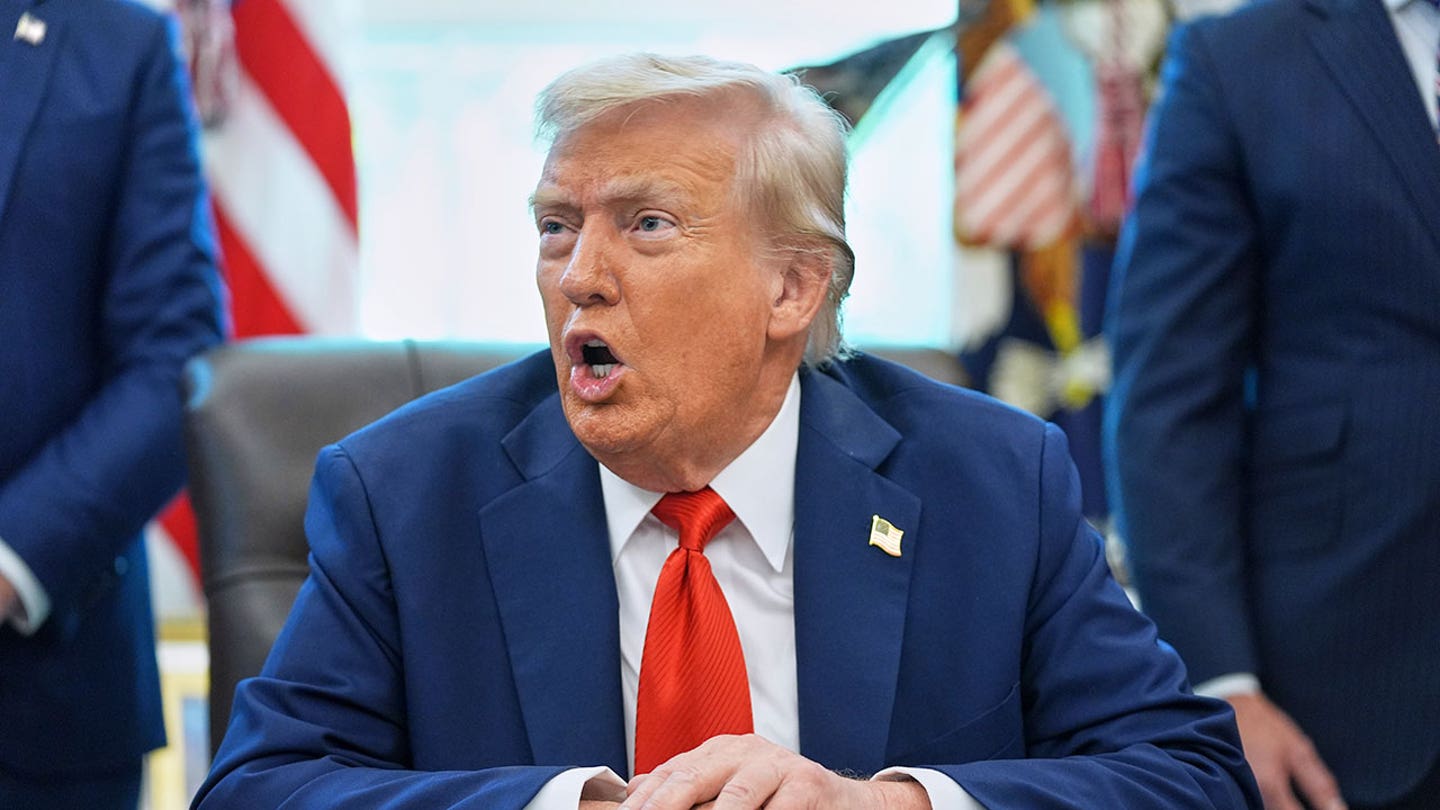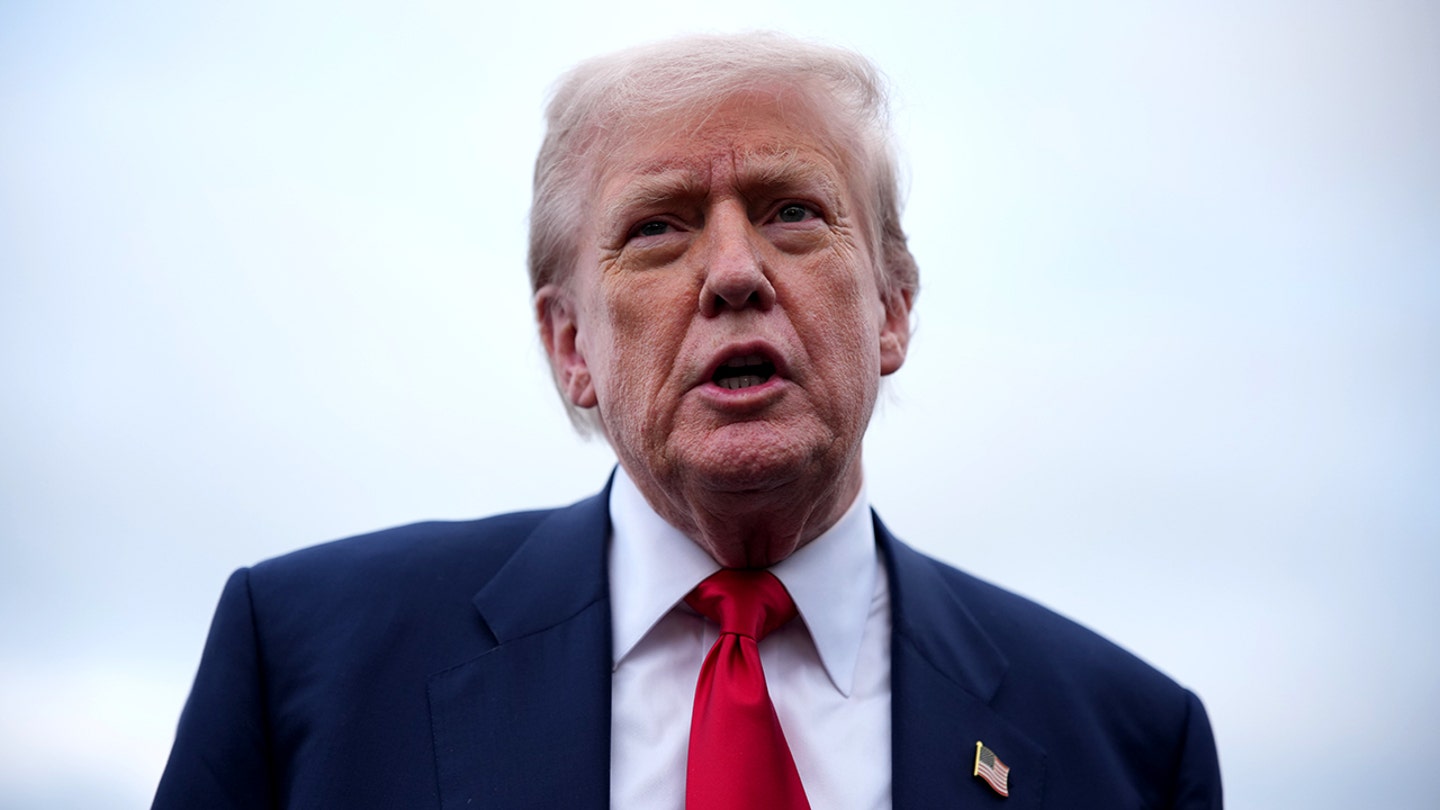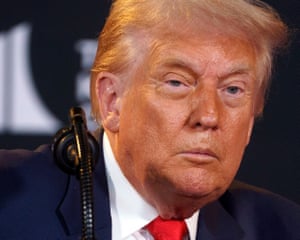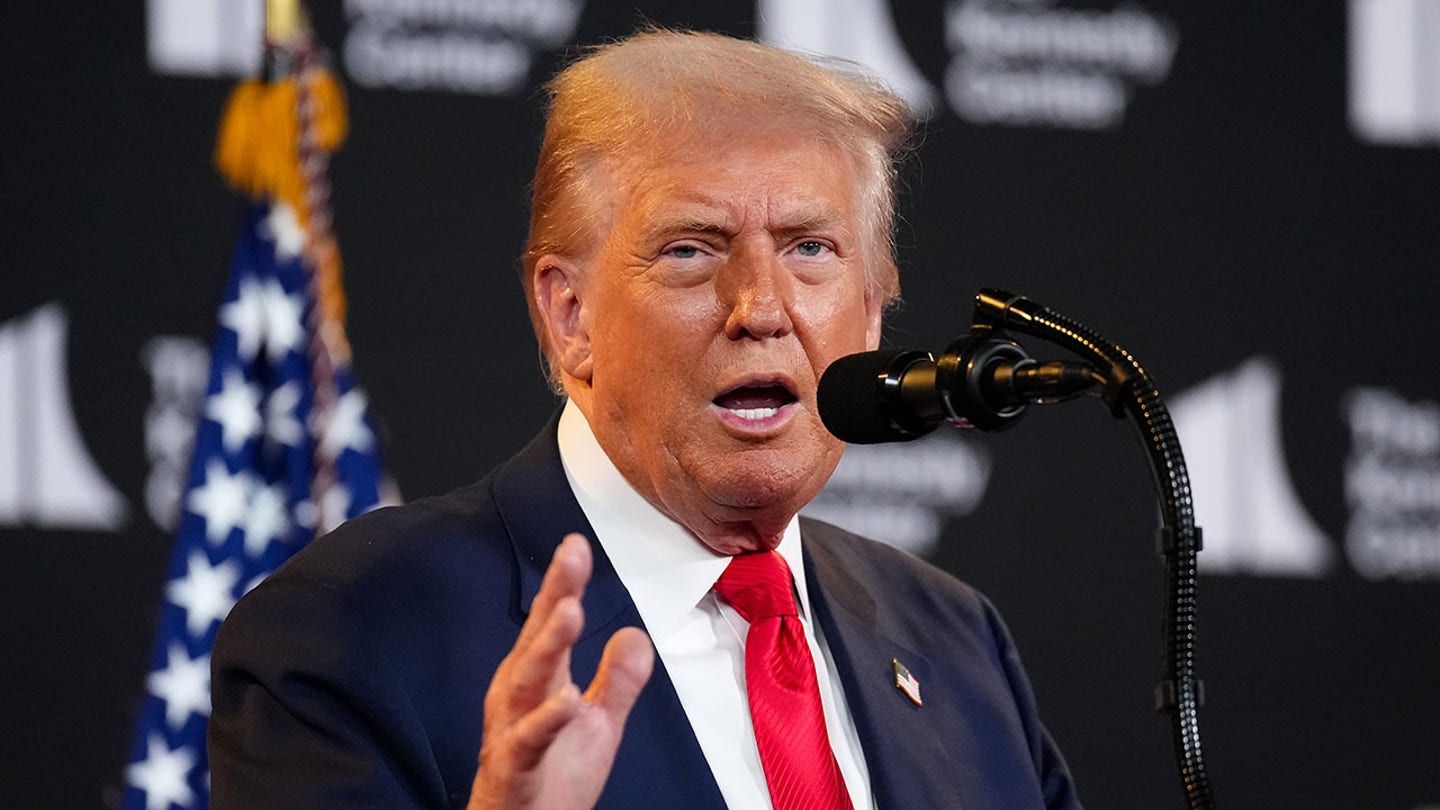
Mike Johnson hits iconic Nashville bar, blasts Dems for 'lying' about Trump's agenda
Entities mentioned:
- Mike Johnson: Ambition, Loyalty, Influence
- Donald Trump: Power, Legacy, Recognition
- Republican Party: Competitive spirit, Control, Influence
- Democratic Party: Opposition, Moral outrage, Self-preservation
- Mark Warner: Opposition, Duty, Influence
Article Assessment:
Credibility Score: 65/100
Bias Rating: 70/100 (Lean Right)
Sentiment Score: 55/100
Authoritarianism Risk: 35/100 (Generally Democratic)
Bias Analysis:
The article leans right, primarily presenting the Republican perspective with positive framing. While it mentions Democratic opposition, it gives more space and detail to Republican arguments and portrays Democrat critiques as 'lying'.
Key metric: Economic Policy Effectiveness
As a social scientist, I analyze that this article highlights a significant political divide over a major economic policy initiative. The Republican-led tax bill, championed by Speaker Mike Johnson and President Trump, is being framed as beneficial for working-class Americans, particularly those in service industries. The GOP is actively promoting the bill's potential positive impacts on tipped workers and overtime wages. However, Democrats are mounting strong opposition, characterizing the bill as favoring the wealthy at the expense of vulnerable populations. This partisan clash over economic policy could significantly impact public perception of each party's commitment to working-class interests and potentially influence future electoral outcomes. The article's focus on direct interactions with workers suggests an attempt to personalize the policy's effects, which could be an effective strategy in shaping public opinion.

Trump threatens lawsuit over century-old Senate tradition delaying his nominees
Entities mentioned:
- Donald Trump: Power, Control, Frustration
- US Senate: Tradition, Control, Duty
- Chuck Grassley: Duty, Tradition, Loyalty
- Democratic Senators: Control, Opposition, Power
Article Assessment:
Credibility Score: 70/100
Bias Rating: 55/100 (Center)
Sentiment Score: 35/100
Authoritarianism Risk: 65/100 (Authoritarian Tendencies)
Bias Analysis:
The article presents Trump's perspective prominently but includes contextual information and opposing views. It sources from Fox News, which tends to lean conservative, but the content itself maintains a relatively balanced tone.
Key metric: Federal Judiciary Appointments
As a social scientist, I analyze that this article highlights a growing tension between executive power and legislative tradition. Trump's threat to sue over the blue slip process indicates an escalation in the ongoing struggle for control over judicial appointments. This conflict could potentially reshape the balance of power between branches and impact the speed and nature of judicial appointments. The president's frustration with what he perceives as obstruction may lead to increased polarization and potentially alter long-standing Senate practices.

Longtime Trump ally formally succeeds Whatley as Republican Party chair
Entities mentioned:
- Joe Gruters: Loyalty, Ambition, Power
- Donald Trump: Control, Power, Influence
- Michael Whatley: Ambition, Loyalty, Professional pride
- Republican National Committee (RNC): Unity, Control, Power
- Democratic National Committee (DNC): Competitive spirit, Moral outrage, Opposition
Article Assessment:
Credibility Score: 65/100
Bias Rating: 65/100 (Lean Right)
Sentiment Score: 55/100
Authoritarianism Risk: 55/100 (Mixed/Neutral)
Bias Analysis:
The article leans right, primarily due to its focus on Republican perspectives and strategies, with limited Democratic viewpoints. The source (Fox News) and the exclusive nature of the interview suggest a preference for Republican narratives.
Key metric: Political Party Strength
As a social scientist, I analyze that this article highlights the continuing consolidation of power within the Republican Party under Donald Trump's influence. The appointment of Joe Gruters, a longtime Trump ally, as RNC chair further cements Trump's control over the party apparatus. This transition is likely to impact the party's strategy, fundraising, and messaging leading into the midterm elections. The emphasis on election integrity and voter registration suggests a focus on base mobilization and potential challenges to electoral processes. The contrast between the RNC's robust fundraising and the DNC's criticism of Gruters indicates heightened partisan tensions and diverging political narratives heading into future elections.

Capitol Hill prepares for high-stakes battle over Trump crime package, DC police authority
Entities mentioned:
- Donald Trump: Power, Control, Legacy
- Lindsey Graham: Loyalty, Influence, Professional pride
- Pam Bondi: Duty, Professional pride, Loyalty
- Katie Britt: Professional pride, Duty, Influence
- Chuck Schumer: Moral outrage, Opposition, Power
- Dick Durbin: Moral outrage, Opposition, Justice
- Republicans: Loyalty, Power, Control
- Democrats: Opposition, Justice, Freedom
Article Assessment:
Credibility Score: 70/100
Bias Rating: 55/100 (Center)
Sentiment Score: 35/100
Authoritarianism Risk: 65/100 (Authoritarian Tendencies)
Bias Analysis:
The article presents views from both Republican and Democratic sides, but gives slightly more space to Republican perspectives. It includes direct quotes from both parties, maintaining a relatively balanced approach despite the controversial nature of the topic.
Key metric: Crime Rate in Washington D.C.
As a social scientist, I analyze that this article highlights a growing political conflict over control of Washington D.C.'s law enforcement. President Trump's proposed crime package and desire to extend control over D.C. police signify a push for federal intervention in local affairs, framed as a necessary step to reduce crime. This move is supported by Republicans but strongly opposed by Democrats, who view it as an overreach of executive power. The conflict reflects broader tensions between federal and local authority, as well as partisan divides on approaches to crime and governance. The potential use of emergency powers to bypass Congress further escalates the situation, raising concerns about the balance of power and democratic processes. This conflict could significantly impact D.C.'s crime rates and policing practices, depending on which approach prevails.

US medical journal rejects call from RFK Jr to retract vaccine study
Entities mentioned:
- RFK Jr: Righteousness, Influence, Moral outrage
- US medical journal: Professional pride, Duty, Credibility
- Trump administration: Power, Control, Influence
- National Guard: Duty, Security, Obligation
- Democrats: Opposition, Justice, Moral outrage
- Mamdani: Ambition, Competitive spirit, Influence
- Cuomo: Power, Competitive spirit, Influence
Article Assessment:
Credibility Score: 65/100
Bias Rating: 35/100 (Lean Left)
Sentiment Score: 25/100
Authoritarianism Risk: 70/100 (Authoritarian Tendencies)
Bias Analysis:
The article leans left in its framing, focusing more on criticisms of the Trump administration and giving voice to opposition figures. While it includes factual information, the selection and presentation of topics suggest a critical stance towards the current administration.
Key metric: Political Stability Index
As a social scientist, I analyze that this article reflects significant political tension and potential instability in the United States. The Trump administration's actions, including revoking Biden's order, taking control of DC police, and reviewing Smithsonian museums for 'patriotic' content, suggest a consolidation of power and potential erosion of democratic norms. The deployment of the National Guard in Washington DC further indicates escalating tensions. The article also highlights growing opposition from Democrats and other political figures, as well as concerns about healthcare and human rights. These factors collectively point to a decrease in political stability and an increase in social division, which could have long-term implications for governance and civil society in the US.

Benny Johnson scolds White House reporters who 'lie' about D.C. being safe during press briefing
Entities mentioned:
- Benny Johnson: Righteousness, Moral outrage, Influence
- Karoline Leavitt: Loyalty, Duty, Professional pride
- Donald Trump: Power, Control, Legacy
- Nancy Pelosi: Opposition, Power, Influence
- Hillary Clinton: Opposition, Influence, Legacy
- Democratic Party: Opposition, Power, Control
Article Assessment:
Credibility Score: 55/100
Bias Rating: 75/100 (Lean Right)
Sentiment Score: 30/100
Authoritarianism Risk: 65/100 (Authoritarian Tendencies)
Bias Analysis:
The article leans right, evidenced by its favorable portrayal of Trump administration actions and critical stance towards Democrats. It primarily presents conservative viewpoints and anecdotes, with limited counterbalancing perspectives.
Key metric: Crime Rate in Major Cities
As a social scientist, I analyze that this article highlights the politicization of crime and safety in Washington D.C., using personal anecdotes to challenge media narratives. The focus on Trump's actions to address crime suggests a shift in federal involvement in local law enforcement, which could have significant implications for crime rates and perceptions of safety in major cities. The article frames the issue as a success for the Trump administration, potentially influencing public opinion on crime policies and federal intervention. The confrontational tone towards other media outlets and opposition party members indicates a polarized discourse on urban crime and safety.

Trump predicts little progress in potential shutdown talks with 'crazy' Schumer, Jeffries
Entities mentioned:
- Donald Trump: Power, Control, Self-preservation
- Chuck Schumer: Opposition, Duty, Influence
- Hakeem Jeffries: Opposition, Duty, Influence
- John Thune: Duty, Professional pride, Unity
- Congressional Democrats: Opposition, Justice, Influence
- Congressional Republicans: Control, Power, Competitive spirit
Article Assessment:
Credibility Score: 70/100
Bias Rating: 55/100 (Center)
Sentiment Score: 30/100
Authoritarianism Risk: 40/100 (Generally Democratic)
Bias Analysis:
The article presents views from both Republican and Democratic perspectives, including direct quotes. However, it gives slightly more prominence to Trump's comments and Republican actions, while Democratic responses are somewhat less emphasized.
Key metric: Government Stability and Functionality
As a social scientist, I analyze that this article highlights the deep political divide and dysfunction in the U.S. government, particularly concerning budget negotiations. The looming threat of a government shutdown underscores the inability of both parties to work together effectively. Trump's dismissive attitude towards negotiations with Democratic leaders suggests a breakdown in bipartisan cooperation. This situation negatively impacts government stability and functionality by creating uncertainty, potentially leading to disruptions in government services and damaging public trust in political institutions. The partisan nature of recent budget decisions, such as the Republican-led clawback package, has further strained relations between the parties, making future negotiations more difficult. This cycle of mistrust and partisan maneuvering threatens the government's ability to operate efficiently and serve the public interest.

DC Mayor Bowser changes her tone on Trump as crackdown ramps up
Entities mentioned:
- Mayor Muriel Bowser: Self-preservation, Duty, Control
- Donald Trump: Power, Control, Influence
- DC Council: Duty, Self-preservation, Unity
- House Minority Leader Hakeem Jeffries: Moral outrage, Opposition, Justice
- Mayor Karen Bass: Criticism, Justice, Duty
- Christina Henderson: Empathy, Duty, Unity
- Free DC project: Justice, Freedom, Moral outrage
Article Assessment:
Credibility Score: 75/100
Bias Rating: 45/100 (Center)
Sentiment Score: 35/100
Authoritarianism Risk: 55/100 (Mixed/Neutral)
Bias Analysis:
The article presents multiple perspectives, including those of Mayor Bowser, other Democrats, and local activists. While it leans slightly critical of Trump's actions, it also highlights Bowser's pragmatic approach, maintaining a relatively balanced view.
Key metric: Political Polarization
As a social scientist, I analyze that this article highlights the complex dynamics between local and federal governance in Washington, DC, particularly in the context of law enforcement. The tension between Mayor Bowser's measured responses and the more outspoken criticism from other Democrats and activist groups illustrates the delicate balance required in navigating federal intervention in local affairs. This situation exacerbates political polarization by pitting local autonomy against federal authority, potentially deepening divides between different levels of government and political ideologies. The article also underscores the unique challenges faced by DC due to its lack of statehood, which limits its ability to resist federal overreach and may further fuel debates about DC's status and representation.

Trump’s rewriting of reality on jobs numbers is chilling, but it could backfire
Entities mentioned:
- Donald Trump: Power, Control, Self-preservation
- Erika McEntarfer: Professional pride, Duty, Integrity
- Bureau of Labor Statistics: Duty, Professional pride, Integrity
- Federal Reserve: Independence, Duty, Professional pride
- Kevin Hassett: Loyalty, Duty, Self-preservation
- Chuck Schumer: Opposition, Indignation, Duty
- Jamieson Greer: Loyalty, Duty, Self-preservation
- William Beach: Professional pride, Integrity, Concern
Article Assessment:
Credibility Score: 75/100
Bias Rating: 30/100 (Lean Left)
Sentiment Score: 25/100
Authoritarianism Risk: 70/100 (Authoritarian Tendencies)
Bias Analysis:
The article leans left in its framing, presenting a critical view of Trump's actions and their implications. While it cites various sources, the overall tone and language choice suggest a negative stance towards the administration.
Key metric: Economic Stability and Credibility
As a social scientist, I analyze that this article highlights a significant threat to the integrity and independence of key economic institutions in the United States. The firing of the Bureau of Labor Statistics Commissioner and attempts to influence the Federal Reserve indicate a trend towards politicizing economic data and policy. This could have severe consequences for the U.S. economy's reputation and stability. The article suggests that Trump's actions may erode investor and business confidence, potentially leading to economic uncertainty and instability. The comparison to countries like Argentina, Greece, and China underscores the risks of manipulating economic data for political gain. The broader implications of these actions point to a weakening of democratic norms and an increase in authoritarian tendencies, which could have long-lasting effects on U.S. governance and economic policy.